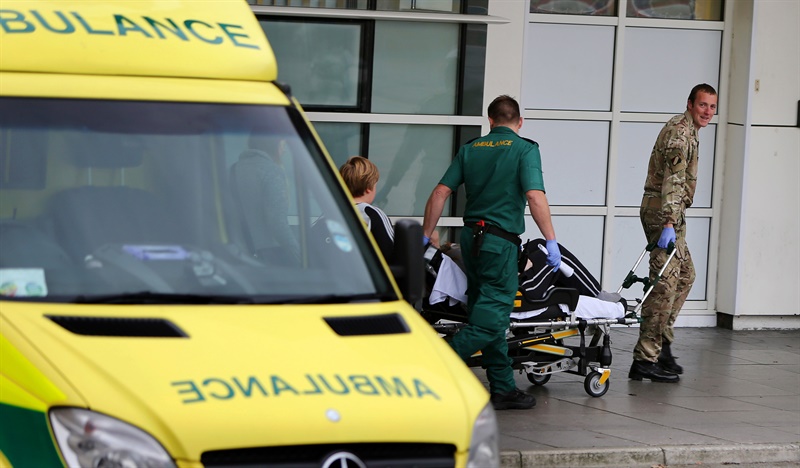14.10.14
Health unions threaten further strike action
NHS staff are to take further strike action next month unless the government agrees to union demands for a 1% pay rise.
Unions who took part in this week's strike action, the first over pay in 32 years, say they will take further action in November unless the health secretary meets them for talks and offers more money. Members of the seven unions that took part in the action, plus the 2,600 senior hospital doctors who are members of the Hospital Consultants and Specialists Association, are continuing to work-to-rule today, with staff working their official hours, taking their breaks, and ambulance staff not doing voluntary overtime.
Among the potential plans is a repeat of the four-hour walkout by all groups at the same time and the possibility of escalating to an all-day stoppage. A third option is for different groups of workers to take action at different times over the course of a day.
Plans will be finalised next week when union leaders meet to review the impact of this week’s action.
The Society of Radiographers is scheduled to walk out on Monday 20 October and other groups are also starting to ballot members, including the Prison Officers Association, whose members work in secure mental health facilities.

(Image: Armed forces personnel helped ambulance staff take patients to hospital c. Peter Byrne/PA Wire)
During Monday's strike, hospital clinics had to be postponed, antenatal classes were cancelled and operations had to be called off due to a lack of staff.
The ambulance service was perhaps the worst hit: patients with broken bones or breathing difficulties were told to make their own way to hospital or visit their GP as there were only enough paramedics to deal with the most serious cases.
The West Midlands Ambulance Service was so badly affected by a third of its crews taking part, and a high volume of calls, that it took to Twitter to plead for only patients whose life was at risk to dial 999.
London Ambulance Service reported that 77% of its crews took part in the action and it needed help from 120 military personnel to drive ambulances.
In a letter to health secretary Jeremy Hunt this week, Unison's head of health Christina McAnea said: "Members have been telling you that patient care is now compromised by plunging morale and increasing recruitment and retention problems. It is not in the interests of patients that many staff have to work additional hours or take a second job just to make ends meet.
"You continue to state that the NHS faces a stark choice between pay and jobs but the evidence just is not there to support that. The NHS pay cap has been in place since 2009 and jobs continue to be lost. It is possible to have a properly funded NHS with enough staff who are paid fairly for the vital work they do – and yesterday has shown that the public agrees with us."
Hospital managers have said privately that this could pose greater operational challenges than the walkout. It is expected to lead to the recruitment of extra staff to plug gaps in rotas for the week and will cause disruption to clinics and planned operations.
A Department of Health spokesperson said: "NHS staff are our greatest asset and we know they are working extremely hard. This is why despite tough financial times, we've protected the NHS budget and now have 13,500 more clinical staff than in 2010. We want to protect these increases and cannot afford incremental pay increases – which disproportionately reward the highest earners – on top of a general pay rise without risking frontline NHS jobs."
More on the strikes here: http://www.nationalhealthexecutive.com/News/nhs-staff-stage-biggest-strike-the-health-service-has-seen-in-32-years
(Top image: NHS workers strike at Liverpool Women's Hospital. Image: Peter Byrne/PA Wire)
Tell us what you think – have your say below or email us directly at [email protected]